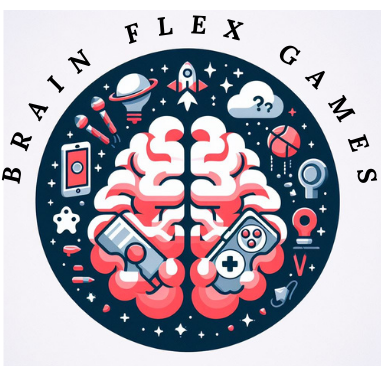Research has begun to show that VR games can have a surprising impact on various cognitive abilities, including memory, attention, and decision-making skills.
When you put on a VR headset, you’re stepping into a world that reacts to your actions and decisions, thereby engaging your brain on multiple levels.
This includes studies where VR has been seen to improve cognitive function.
For instance, a VR game might have you navigating a complex maze, thereby exercising your spatial awareness and memory.
Or perhaps you must make rapid decisions to solve puzzles, honing your problem-solving prowess.
You see, VR’s unique environment compels players to utilize cognitive skills like never before, fundamentally changing the way we might approach brain training.
And this is where traditional gaming, with its more static and less immersive nature, often falls short in comparison.
Now what’s really fascinating about VR gaming is its potential for practical cognitive benefits.
Improved cognitive abilities can have a ripple effect on daily life, from better multitasking to faster learning.
So as we move forward, the question becomes: could embracing VR be as good for our minds as it is for entertainment?
Learning Reimagined: The Transformative Impact of VR in Education
Virtual Reality is shaking up the traditional classroom – and for good reason.
The immersive nature of VR provides a whole new canvas for experiential learning that textbooks and videos can’t match.
Imagine diving into the human bloodstream to learn about circulation or standing among historical events as they unfold.
That’s the kind of transformative experience VR is bringing to education.
The proof is in the pudding, or in this case, the case studies.
Schools and universities that have incorporated VR into their curriculums are seeing tangible results.
Complex concepts become clearer when they can be visually explored in a three-dimensional space, and abstract theories come to life.
Engagement is key to learning, and VR games excel at capturing attention.
The interactive element ensures that students are not passive recipients of information but active participants in their educational journey.
This increased engagement leads to higher retention rates. When you’re the main character in a lesson, you’re far more likely to remember its content.
When considering such a powerful tool, it’s important to recognize its potential for misuse.
Enjoying the benefits of VR means understanding its limitations and knowing when it complements other forms of learning rather than replacing them.
Navigating this new terrain carefully ensures that VR enhances the educational experience without overwhelming it.
Staying Motivated and Mindful: How VR Gaming Alters Engagement and Well-being
The sense of presence in a virtual environment can significantly impact our motivation and mood.
The intrinsic motivation VR games is also providing players with an inner drive to keep exploring and learning.
In my opinion, one of the most promising applications of VR is in the realm of mental health, where it’s used to alleviate symptoms like stress and anxiety.
For instance, tranquil VR environments can offer a form of digital therapy that promotes relaxation and mindfulness.
Don’t worry too much about VR replacing traditional stress-reduction techniques.
Think of it instead as an extra tool in your well-being arsenal – a modern take on meditation or yoga, capable of drawing you into peaceful landscapes that might be hard to reach in your day-to-day environment.
Of course, it’s important to approach VR gaming mindfully.
You can always adjust your approach down the road, but to start, I suggest setting limits to avoid potential negative effects like motion sickness or eye strain.
And it never hurts to consult with a healthcare professional, especially if you have specific concerns about your mental or visual health.
Virtual Fitness for the Mind: VR Games in Physical Activity and Cognitive Health
By now, you can see that VR games offer more than just a cutting-edge gaming experience.
They’ve introduced a new dimension to physical fitness that benefits both the body and the brain.
While strapping on that headset and navigating virtual worlds, you’re actually stimulating cerebral blood flow, which is a major player in boosting cognitive functions.
Exciting research, like the studies at UC San Francisco’s Neuroscape brain research center, has begun unveiling the impressive capabilities of VR games in improving memory in older adults.
This blend of physical activity with mental exercise in a virtual reality setting could very well be our next big leap in combating cognitive decline.
As you incorporate VR into your active lifestyle, remember to pace yourself.
Balance is key, and overindulging in virtual worlds can sometimes lead to physical discomfort or distract from other important daily activities.
Most importantly, keep an eye on the evolving research.
We’re only starting to scratch the surface of how VR can shape our cognitive health over the long term.
Stay informed, stay balanced, and enjoy the journey to a healthier brain.
